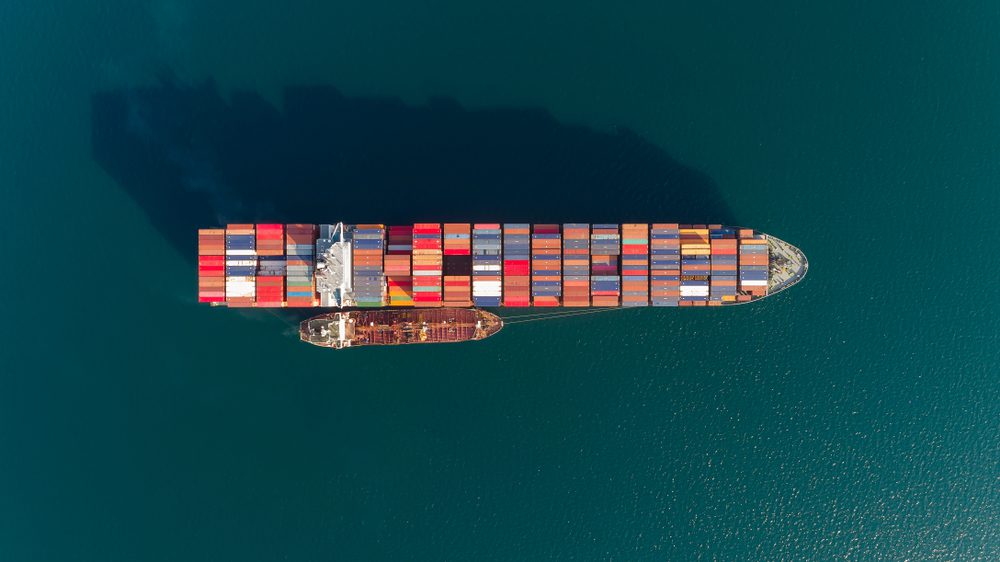The UAE’s Port of Fujairah, the world’s third-biggest bunkering hub, is facing increased competition to supply marine fuels in the region, with new entrants ranging from Saudi Arabia to Qatar and Egypt.
Qatar has started supplying marine fuels for its own LNG fleet and is now probably the second-largest bunkering hub in the Middle East after Fujairah, Colin Holloway, global head, technical, at Cockett Marine Oil, told the Middle East Bunkering Convention in Dubai on March 9.
Egypt has recently issued two bunkering licenses for the Suez Canal and two licenses on the port side to three companies, providing bunkering to a market that serves 20,000 ships a year, compared with 10,000 ships annually at Fujairah, Holloway said. Cockett is owned 50% by commodities trader Vitol and 50% by Grindrod, a logistics and services company.
“This region is the hottest market in the world in terms of new players,” said Dusan Gojkovic, senior bunker trader at Red Sea Bunkering, the Djibouti government-owned bunker supplier. New players have been “quite active” since 2021, he said.
Fujairah, which supplied 651,430 cu m of bunkering in January, is expanding as well. Singapore-based Global Energy in February became the 12th licensed bunker supplier after Montfort Trading joined in September 2021.
“The most interesting place is the Red Sea,” Holloway said. “I’ve always thought the Red Sea should be a major bunkering hub. I see movement there and I think it’s going to be very interesting.”
Saudi Arabia is also building bunkering at Yanbu and Jeddah on the Red Sea, he said.
Minerva Bunkering said Dec. 22 it had started offering marine fuels at both ports, working with the energy ministry and Aramco Trading. Minerva Bunkering and Aramco Trading will cooperate on cargo trading and supplying vessels calling at Yanbu, Minerva CEO Tyler Baron said in an interview at the time.
Bahrain is also making marine gasoil available to shippers, Djibouti is offering HSFO, Jebel Ali in Dubai is probably supplying 50,000 mt/month while the UAE’s Ras Al Khaimah is providing fuel oil and Oman’s Port of Duqm has a barge for supplies, Holloway said.
The competition will be welcome to shipowners who are facing increased costs in the region.
Fujairah-delivered LSFO hit $1,003/mt on March 8, the highest since assessments began in July 2019, according to S&P Global Commodity Insights data. Prices have been at record highs since Jan. 10 and broke the $1,000/mt mark on March 7.
“I’ve never seen prices over $1,000/mt, and I think we’re going to have to live with it,” Holloway said.
Fujairah prices rise
Fujairah is now more expensive than Singapore. The spread of delivered marine fuel 0.5%S between Singapore and Fujairah averaged minus $18.33/mt March 1-8, compared with February’s average of minus $6.56/mt, according to S&P Global data. Singapore-delivered marine fuel 0.5%S prices typically trade at a premium to Fujairah. The spread was assessed minus $20/mt March 8.
Relative to Singapore, Fujairah’s LSFO cargo inventories are expected to remain tight throughout the rest of March, a Fujairah-based bunker supplier said, adding that this has been the case since February.
Despite the price spreads between Singapore and Fujairah, suppliers at the Middle Eastern bunkering hub have yet to see a diversion of bunker demand to Singapore.
“Any loss of [LSFO bunker] demand to Singapore is yet to be seen. However, we can expect that coming,” the bunker supplier said.
Source: Hellenic Shipping News





